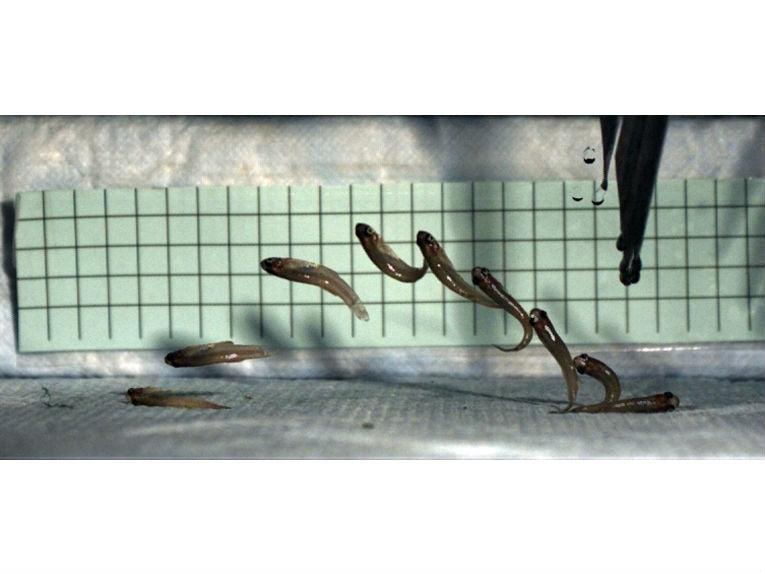Prof. Alice Gibb watched the catch jump from the net back into the water. It had jumping skills and knew what it wanted to do. Her study of feeding behaviour was abandoned and "studies of stranding" became the new research aim. By now, she has achieved unbelievable results relevant to the (possibly frequent) evolution of land vertebrates from the fish, more than 300 million years ago.
With her Northern Arizona University research team, Alice claims the research looks at the big picture. This involves the whole nervous system allowing novel behaviour without any physical change through mutation. She aims to investigate the genetics of this nervous change next. We don't need legs or rigid pectoral fins to move on land, and the fossil searchers who look for such evidence have been missing vital evidence, says the erudite professor "In my mind, that opens up the fossil record to re-interpretation," Dr Gibb said.
A Guppy relative, the fish involved was originally the Mangrove Rivulus

(Above: Rivulus marmoratus; Credit: © F. Vermeulen), which has often been studied for its unique amphibious lifestyle and reproduction on land and in the swamps and elsewhere. Its relative, the Guppy, was also studied and unbelievably found to jump almost as well. Your well-known aquarium fish is no Amphibian. Neither is he amphibious. So what is he doing jumping so well? And zebra fish, and mosquito fish, too. Professor Gibb has now found that all of these species, six in all, curl the head towards their tail and then push off the ground. One particularly intriguing discovery when they examined video footage was that the mosquito fish (Gambusia affinis) and zebra fish.
(Danio rerio) used the same "tail flip" technique to perform impressive leaps.
"The last common ancestor of the two species examined in this study lived about 150 million years ago," said Dr Gibb, "which implies that the behaviour is at least that old."
Next come directional investigations (Can the fish have an inkling where it might go?) and a look at the genetic basis of the behaviour. Alice Gibb believes the swimming capability could be compromised by the ability to jump like this. More repercussions for those first land tetrapods and how on Earth they evolved legs. The full study has been published in the JEZ A: Ecological Genetics and Physiology.










